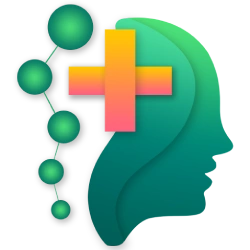OBSESSIVE COMPULSIVE DISORDER (OCD)
Obsessive Compulsive Disorder (OCD)
Obsessive-Compulsive Disorder (OCD) is a mental health condition characterized by intrusive, unwanted thoughts (obsessions) and repetitive behaviors or rituals (compulsions). These obsessions and compulsions can significantly interfere with daily activities, relationships, and overall quality of life. OCD affects people of all ages, genders, and backgrounds, and it often develops in childhood, adolescence, or early adulthood. Without proper treatment, OCD symptoms can become chronic and debilitating. However, with the help of therapy, medication, and support, individuals with OCD can learn to manage their symptoms and lead fulfilling lives.
What are the symptoms of Obsessive-Compulsive Disorder?
Symptoms of OCD are characterized by two main components:
a) Obsessions: These are intrusive, repetitive thoughts, images, or impulses that cause distress to the individual. These thoughts feel like a stuck tape recorder playing the same song repeatedly, and the person struggles to ignore or suppress them.
b) Compulsions: These are repetitive behaviors or mental acts that the individual feels compelled to perform in response to their obsessions. These actions are not enjoyable and often cause distress. Common compulsions include hand washing, checking locks, rearranging items, and seeking reassurance.
Some common obsessions and compulsions include:
- Excessive hand washing due to feeling dirty
- Spending an extended time in the shower
- Repeatedly checking if doors are locked
- Turning lights on and off multiple times
- Continuously rearranging items until they feel perfect
- Striving for perfection in tasks
- Excessive planning for the future
- Seeking constant reassurance from others
- Counting things repeatedly
- Experiencing repetitive doubts and struggling with decision-making.
What are the causes of Obsessive-Compulsive Disorder ?
- Biological Factors: Imbalances in neurotransmitters like serotonin, dopamine, and glutamate may contribute to OCD.
- Genetics: OCD tends to run in families, suggesting a genetic predisposition to the disorder.
- Environmental Factors: Stressful life events or traumatic experiences can trigger or exacerbate OCD symptoms.
- Neurological Abnormalities: Structural or functional abnormalities in certain brain regions, such as the orbitofrontal cortex and basal ganglia, have been associated with OCD.
- Psychological Factors: Certain personality traits or cognitive patterns, such as perfectionism or intolerance of uncertainty, may increase the risk of developing OCD.
How to treat Obsessive-Compulsive Disorder?
Medication: Selective serotonin reuptake inhibitors (SSRIs) are commonly prescribed antidepressants that can help alleviate OCD symptoms by affecting neurotransmitter levels in the brain.
Cognitive-Behavioral Therapy (CBT): CBT, particularly exposure and response prevention (ERP), is the most effective form of psychotherapy for OCD. It helps individuals confront their fears and reduce compulsive behaviors gradually.
Exposure and Response Prevention (ERP): ERP is a specific form of CBT that involves gradually exposing individuals to situations that trigger obsessions while encouraging them to resist engaging in compulsive behaviors. This technique helps desensitize individuals to their fears and reduces the urge to perform rituals.
Transcranial Magnetic Stimulation (TMS): TMS is a non-invasive procedure that uses magnetic fields to stimulate nerve cells in the brain. While research on its effectiveness for OCD is ongoing, some studies suggest that it may help reduce symptoms in individuals who have not responded to traditional treatments.
Dr. Nishtha Dalwani is one of the leading experts in this field and the best OCD psychiatrist in Mumbai. She has successfully treated numerous OCD patients throughout her career as a psychiatrist and has earned a reputation among the top Psychiatrists in Mumbai.

